Emotionally attached to university
 I have never seen a deeper, more lasting relationship than the one that exists between our graduates and the institution."
I have never seen a deeper, more lasting relationship than the one that exists between our graduates and the institution."
— Vice President for Advancement
Charlie Phlegar '78, '87
Well-being
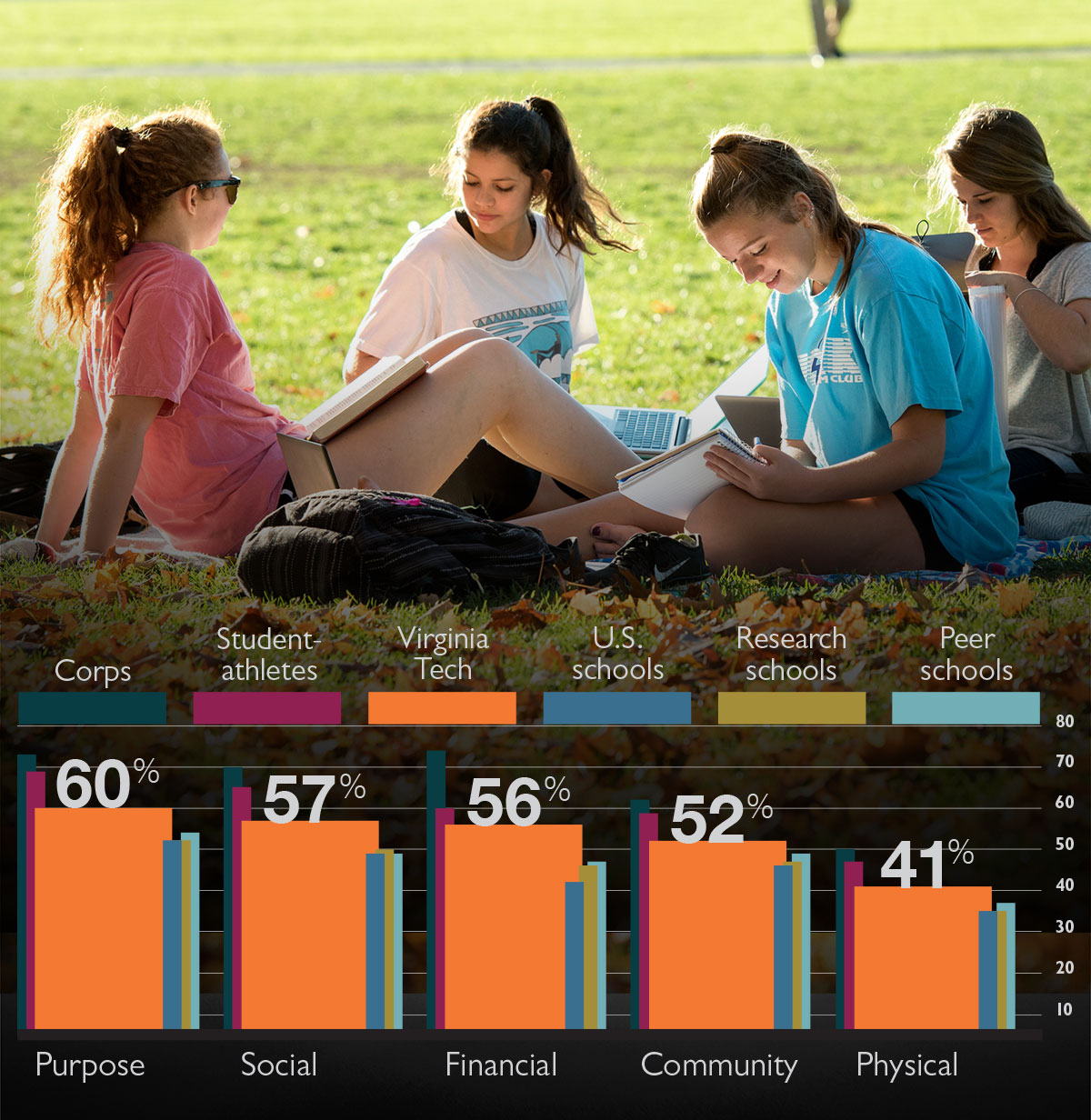
Purpose
Liking what you do each day and being motivated to achieve your goals
Social
Having strong and supportive relationships and love in your life
Financial
Effectively managing your economic life to reduce stress and increase security
Community
The sense of engagement you have with the areas where you live, liking where you live, and feeling safe and having pride in your community
Physical
Having good health and enough energy to get things done on a daily basis
Hokies' community service hours
in past year
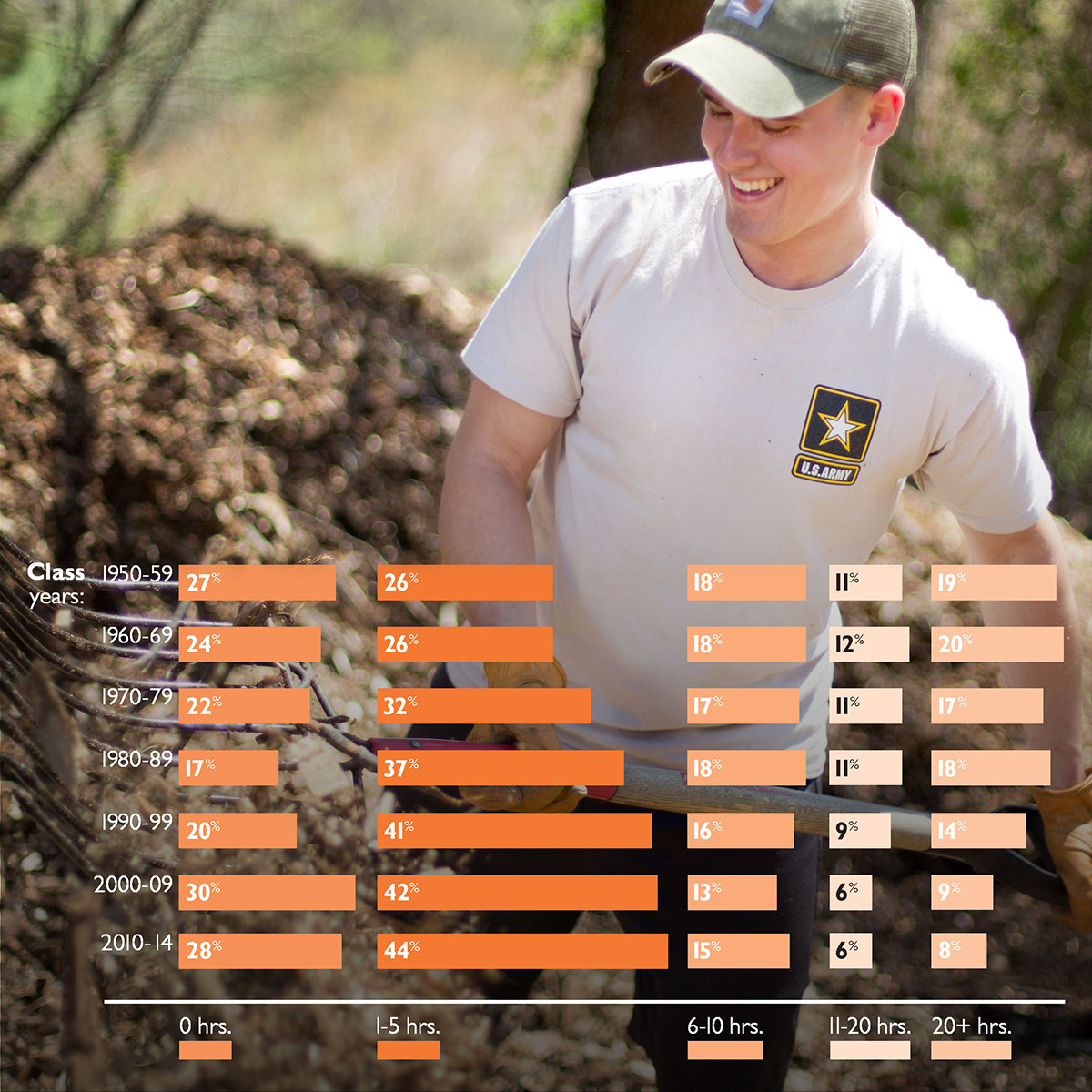
Prepared me well for life
outside of college
Alongside the largely positive results, the study revealed two challenges for Virginia Tech—offering more experiential learning opportunities and enriching support from professors and mentors—on which university leaders are already focused.
Mentoring support
The "mentoring support" values reflect those who strongly agreed that as undergraduates they had all three measures of support: a professor who cared about them as people; a mentor who encouraged them to pursue goals and dreams; and at least one professor who made them excited about learning.
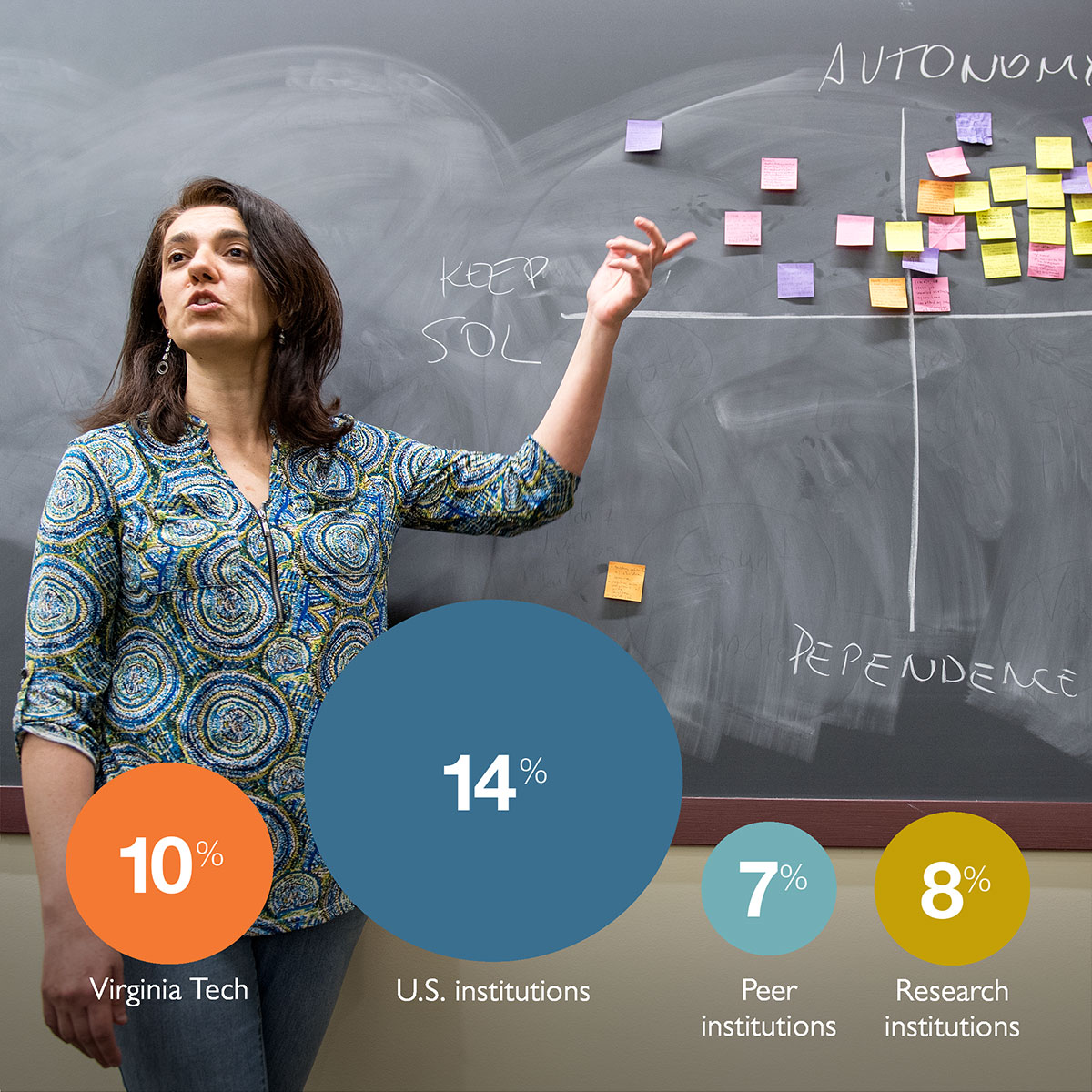
 We plan to do everything we can to expand internship opportunities for our students because the impact of experiential learning on future success cannot be overstated. Internships build confidence, open doors, and raise ceilings. We want every Virginia Tech undergraduate student to have the opportunity to participate in a relevant internship or undergraduate research experience, and we are committed to fostering mentoring relationships for all of our students."
We plan to do everything we can to expand internship opportunities for our students because the impact of experiential learning on future success cannot be overstated. Internships build confidence, open doors, and raise ceilings. We want every Virginia Tech undergraduate student to have the opportunity to participate in a relevant internship or undergraduate research experience, and we are committed to fostering mentoring relationships for all of our students."
— Virginia Tech President
Timothy D. Sands
Experiential learning
The "experiential learning" values reflect those who strongly agreed that they had experienced all three learning opportunities: an internship or job in which they were able to apply classroom learning; were actively involved in co-curricular activities or organizations; and worked on a project that took a semester or more to complete.
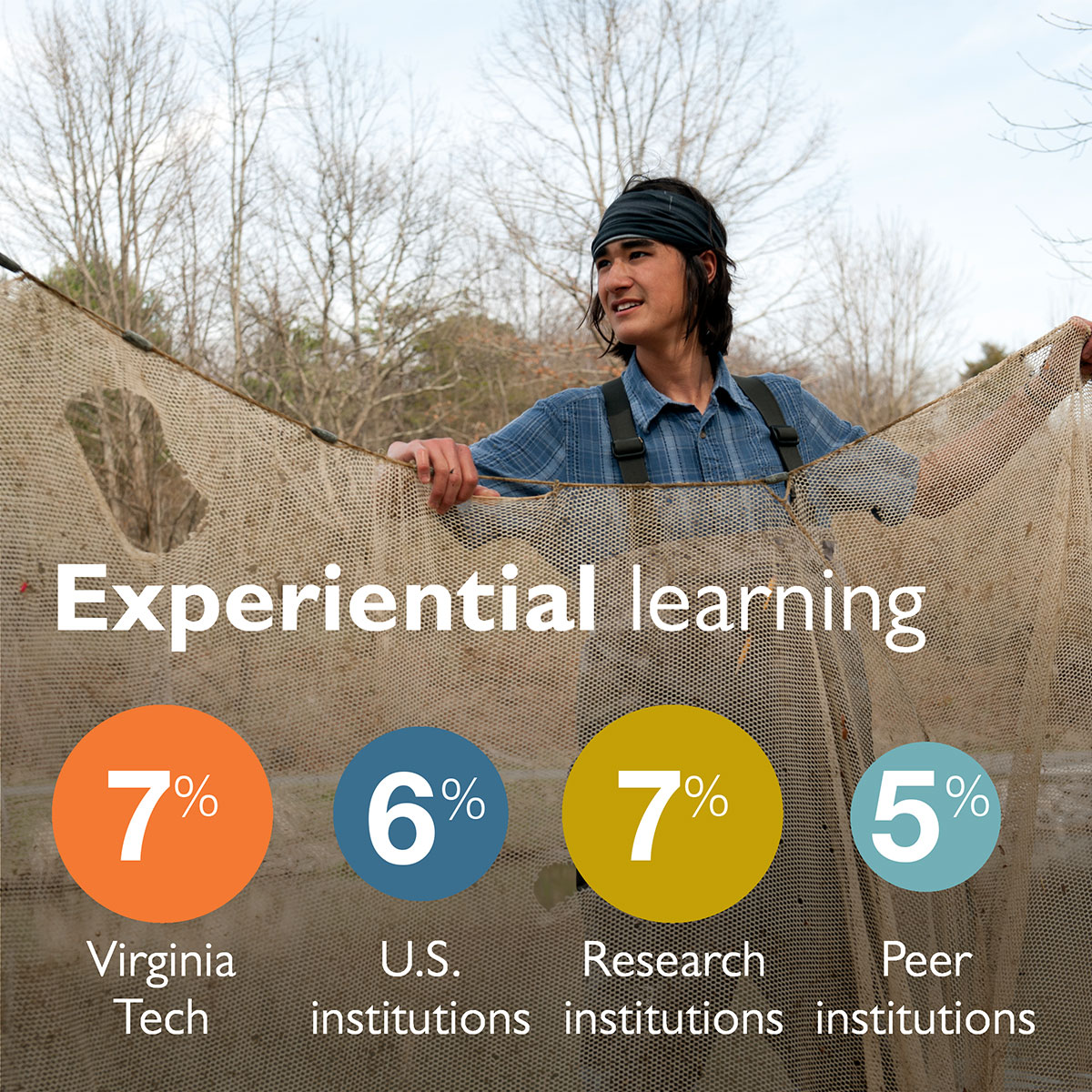

 I have never seen a deeper, more lasting relationship than the one that exists between our graduates and the institution."
I have never seen a deeper, more lasting relationship than the one that exists between our graduates and the institution."

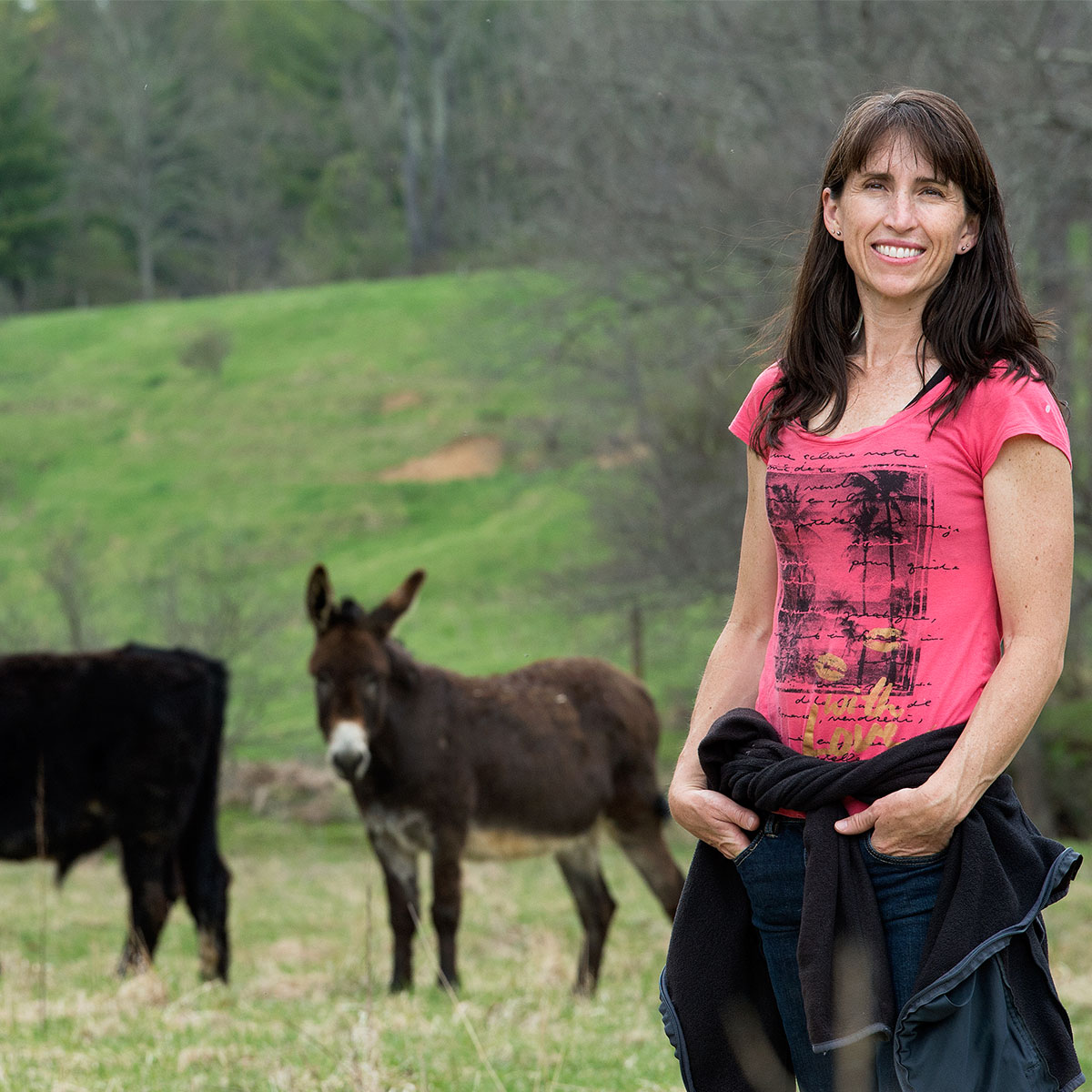

 We plan to do everything we can to expand internship opportunities for our students because the impact of experiential learning on future success cannot be overstated. Internships build confidence, open doors, and raise ceilings. We want every Virginia Tech undergraduate student to have the opportunity to participate in a relevant internship or undergraduate research experience, and we are committed to fostering mentoring relationships for all of our students."
We plan to do everything we can to expand internship opportunities for our students because the impact of experiential learning on future success cannot be overstated. Internships build confidence, open doors, and raise ceilings. We want every Virginia Tech undergraduate student to have the opportunity to participate in a relevant internship or undergraduate research experience, and we are committed to fostering mentoring relationships for all of our students."